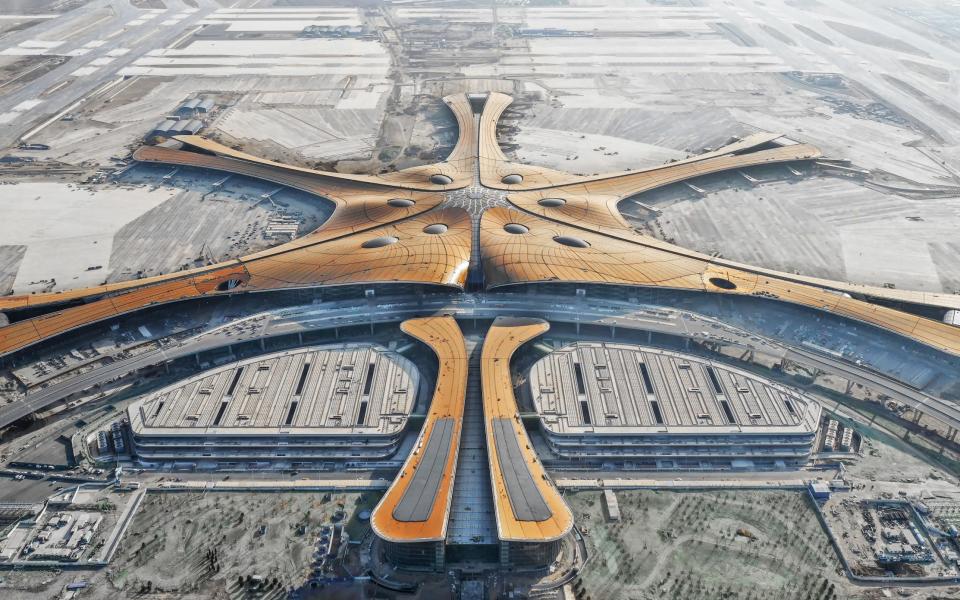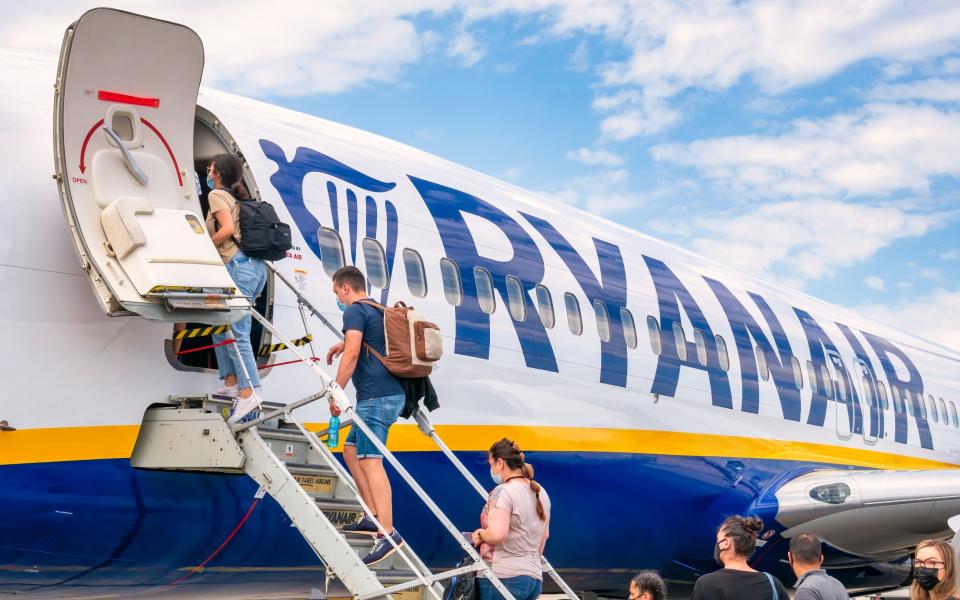No passports, domestic flight bans and BA’s renaissance – what flying could look like in 15 years

High-tech jets, new routes, green initiatives and rising costs will transform aviation in the next decade. Here’s how we think taking to the skies will change – and British Airways could become big and beautiful again.
The biggest airline in Europe will be…
Ryanair – still – with 300 million passengers a year (up from 167 million now). Price trumps all other factors in short-haul and Ryanair also has the biggest expansion plans. It has just ordered 300 new Boeing jets.
The biggest long-haul airline in the world will be…
Turkish Airlines. It will overtake Emirates, thanks to massive fleet expansion – it has 800 aircraft on order – and its new Istanbul hub, which has five runways and will be capable of handling 170 million passengers a year by 2033. (Dubai International, Emirates’ hub and currently the world’s busiest international airport, has only two runways and will soon max out at 120 million passengers a year.)
The world’s busiest airport will be…
Beijing Daxing, which will finally knock Atlanta’s Hartsfield-Jackson from its perch, with about 200 million annual domestic and international travellers.

British Airways will be…
Forty-nine per cent owned by Qatar Airways. The Gulf super-connector, seven-time winner of the Skytrax “World’s Best Airline” award, already has a 25 per cent stake in IAG, BA’s parent company. And passengers will see the benefit, with the new joint venture offering a premium service to almost anywhere on the planet from twin hubs in London and Doha.
Virgin Atlantic will be…
Working even more closely with Delta, which already owns 49 per cent of the carrier. It might also be in partnership with EasyJet. Virgin needs a short-haul feeder partner and easyJet a long-haul partner in order to grow. Such a move could see Virgin return to Gatwick. It pulled out during the pandemic.
First-class cabins will be…
Rarer, found only on super-premium routes, such as London to New York, Los Angeles, Singapore, Dubai and Cape Town. They will also be smaller – six to eight seats at most – and more like private jets, with sofas that turn into beds.
Singapore Airlines’ Suites Class, which offers double beds, and Etihad’s Residence, a 125 sq ft private apartment with a living area, bathroom with shower, and double bed in the nose cone, show the way.
Business class cabins will be…
Smaller, as business travel declines relative to leisure travel, and all about privacy. With even “How ya’ goin’?” Qantas and “party-on!” Virgin Atlantic installing doors in business class, prepare to be put in a box with a flat bed whether you like it or not.

Premium economy cabins will be…
Everywhere. Every major airline will introduce the class, including Qatar Airways, which is currently holding out. The cabins will expand, too, for two reasons. First, the number of leisure travellers who want comfort but cannot afford business class is increasing rapidly. Second, premium economy is the most profitable cabin on an aircraft per square foot.
Economy class cabins will look…
Better – but only a bit. It’s still economy. Seats will be thinner, providing a few more centimetres of legroom. In-flight entertainment will improve thanks to an endless choice of films, TV and music, bigger screens and Wi-Fi that actually works.
Fares…
Will be higher. Most Western nations will impose levies to support the development of much-needed sustainable aviation fuels, with the cost passed on to passengers.
Britain’s airports will…
Grow fast – but only outside the South East. Both Heathrow and Gatwick are full, but environmental concerns mean no major new runway will be built at either. So, Stansted, Birmingham, Manchester, Bristol, Cardiff, Exeter, Edinburgh and Glasgow will expand.

They will offer more long-haul, non-stop services, often using new, single-aisle, twin-engine jets, such as the long-range Airbus A321 that can fly to the Gulf and east coast cities in North America at a very low cost per seat. Aer Lingus is already using A321s to fly to New York, Boston, Washington, Philadelphia and Toronto from regional airports.
American airports will remain…
The seventh circle of hell.
Check-in will be…
Non-existent. Our face and iris will be our passport. We will simply walk past a facial scanner to security.
Airport security will be…
A brisk walk. We will simply stroll through an X-ray arch. No need to stop or remove liquid or laptops from our hand luggage.
Airport baggage drop will be…
Self-service, in a good way. Every piece of hold luggage will have a personalised RFID tag that links to our booking. Just pop the bag down the chute.
Journeys to the airport will be…
Automated – and faster. Self-driving cars, on dedicated roads, will take us and our luggage directly to the gate where our plane is waiting and we will check in there.

Airport shopping will be…
Done online and collected at the airport after we arrive or delivered straight to our hotel or Airbnb.
Planes will…
Get smaller. The Boeing 747 has all but left the skies – Lufthansa is the only major carrier that soldiers on with a fleet of jumbos. Airbus has ended production of its A380 superjumbo and Emirates, which has the largest A380 fleet, will scrap its last “big bird” by 2040. In future, the single-decker, twin-engine Airbus A350 and Boeing 787 and 777X will rule the skies.
Average flight times will be…
Shorter, thanks to new ultra-long-haul routes, such as London and New York non-stop to Sydney and Melbourne, and the introduction of battery- and hydrogen-powered planes on short-haul routes which will be able to taxi and take off faster than fossil fuel-powered jets.
Domestic European flights of less than one hour…
Will be banned by the EU. Travellers will have to take the train.
Private jets in Europe will be…
Fueled 100 per cent by sustainable aviation fuel or battery or hydrogen to avoid government bans.
Supersonic travel will be…
Stuck on the tarmac. A commercial successor to Concorde is unlikely to race through the earth’s atmosphere because its vast fuel burn per passenger will make the guilt too hard to offset.
The new Concorde, the ultimate air travel status symbol, will be…
Qantas first class, non-stop London and New York to Sydney and Melbourne. $20,000 return.
No one will have discovered a way to beat…
Turbulence.
The best major long-haul international airline in the world will…
Emirates – or the new Qatar/BA. Watch this (air) space.


